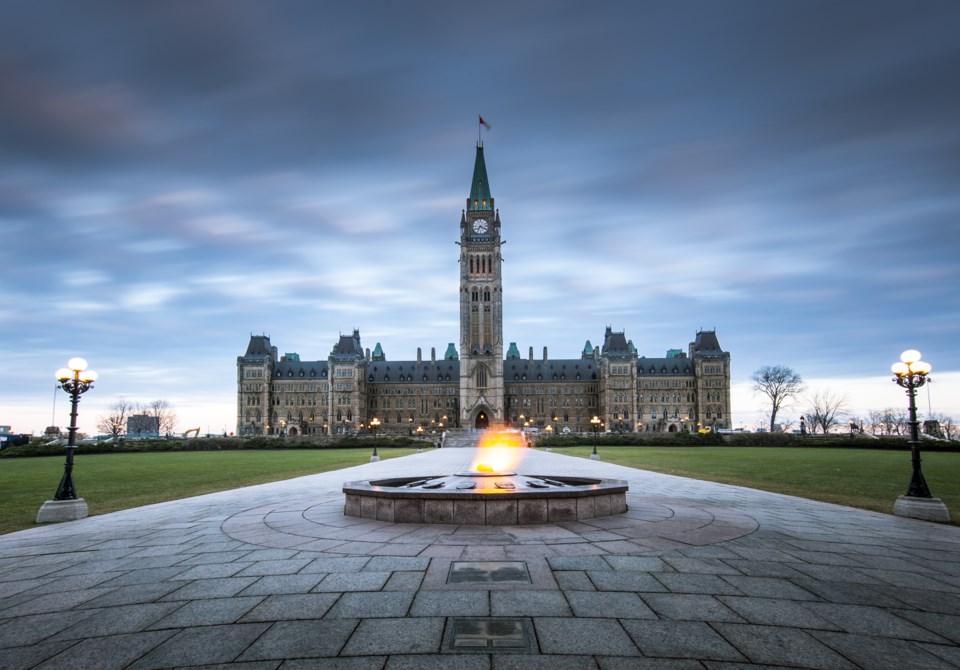If a week is an eternity in politics, then three years is the substance of sci-fi time travel.
Let’s say that three years ago, two political parties – let’s call them Liberals and NDP – agreed on a coalition to govern. Among the thousands of policies in these last three eventful years, which ones would have been made contractually harmonious and free from harm?
Right, the health and financial management to fight the pandemic.
Uh huh, the various levers of the senior government to steer the economy.
Yes, the path and speed to fulfill Indigenous reconciliation.
Sure, the scope and qualities of social programs.
Which is to say: A lot has happened.
How comfortable would we have been these last three years knowing there was no way to unseat a government that had not earned our mandate? What could have occurred that enough of us wouldn’t want?
Yet here we now are today, facing the next three years of only one political certainty: that every uncertainty about federal governance is no longer subjected to accountability, no longer addressable in a confidence vote, no longer anyone’s business until June 2025.
Even if that isn’t how Canadians voted six months ago, today we have been bolted together.
The party pact struck by Justin Trudeau and Jagmeet Singh ought not to assure Canadians that stable government is in place but that they have taken away the agency Canadians had through every opposition party to modify a Liberal Party that hardly mopped up at the polls.
The presence of a minority government is usually a reflection on the ceilings of party leadership. No one six months ago sufficiently inspired and motivated Canadians to earn a majority.
The country spoke. The pact muffles.
The attraction of a minority government is that each opposition party at some point has to score some success, that the government is flexibly operated to accommodate shifts in national priorities, and that there is always room when it overreaches or underwhelms to send it packing and send voters to the polls.
No such chance now. As former NDP leader Tom Mulcair notes, the Liberals get 100% control with one-third of the votes.
Trudeau gets to govern the way he wishes, which is generally to concoct and distribute benefits with little regard for the down-the-road debts that must be paid. Instead, his principal payment is to Singh, for fulsome support that looks the other way at budget time after time after time after time and other confidence measures in the House of Commons typically employed as tripwires for tactless minority governments.
The main elements of the Confidence and Supply Agreement will see national dental and pharmacare programs emerge, a 10-day sick leave program for workers, a claim on the profits of the banks, a homebuyers “bill of rights” and an “early learning and child care” act. These mostly sound positive and truly sound expensive.
Doubtless, there stand to be consequences for this arrangement. For the NDP, it is to permit the Liberals to claim their ideas and earn credit as they’re implemented. For the Liberals, it is to face the electorate next time having gone off their game somewhat to appease the junior partner.
Let’s remember this is a Liberal-NDP pact, not a Trudeau-Singh one, and there too are consequences. The Liberals can establish a succession process and break in a leader without the fear of a snap election. It is for them an insurance policy. The party paying for it is the NDP, whose leader did not alight the country in either of the last two elections and could now face a Liberal leader who will have had time to impress voters with Singh’s own protection.
For the Conservatives, this has the effect of participating on Zoom while on mute. They can huff and puff and never blow the house down. They have no desire, unless they’re into self-harm, to precipitate an election. But along the way to June 2025 it would be good – not only for them, but for everyone – to think there was that option.
What is worth wondering today is whether the centrist and progressive amalgam of a Liberal-NDP government will also sponge the Red Tories and provoke this Conservative leadership campaign to search for a much more strident voice to differentiate the brands.
These conditions might not be those that, say, Jean Charest was anticipating only two weeks ago as he contemplated entering the race. But then again, two weeks is more than an eternity in politics.
Kirk LaPointe is publisher and editor-in-chief of Business in Vancouver and vice-president, editorial, of Glacier Media.



